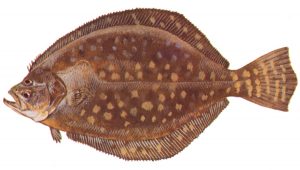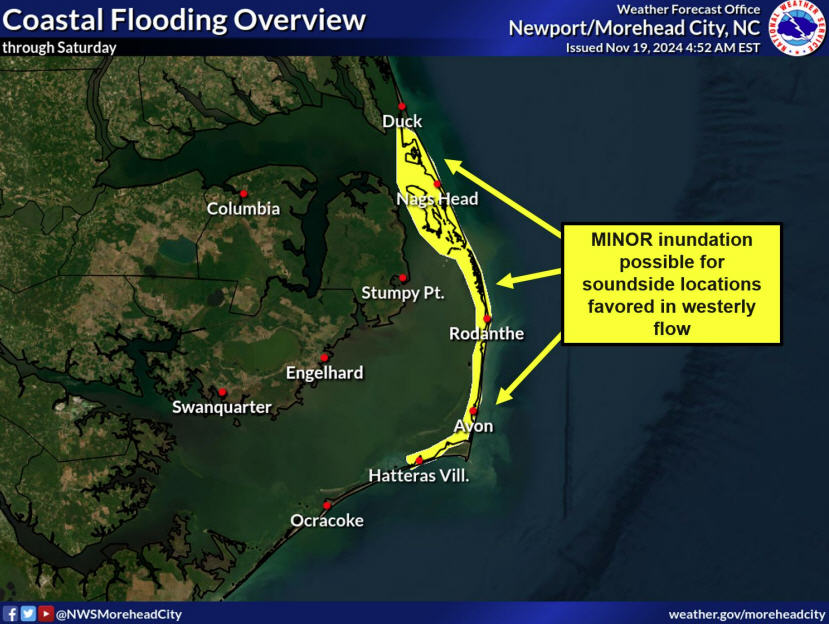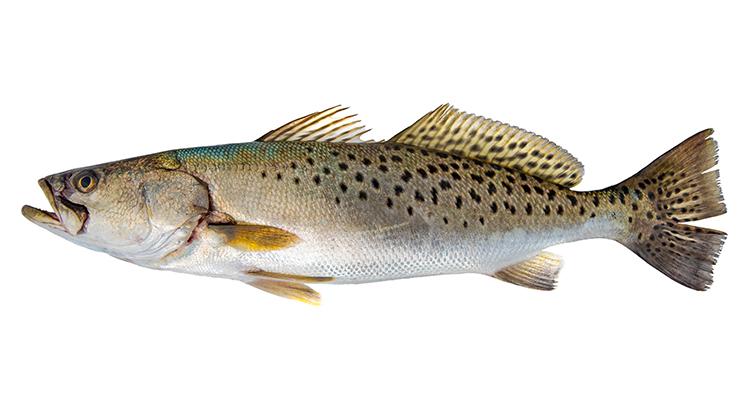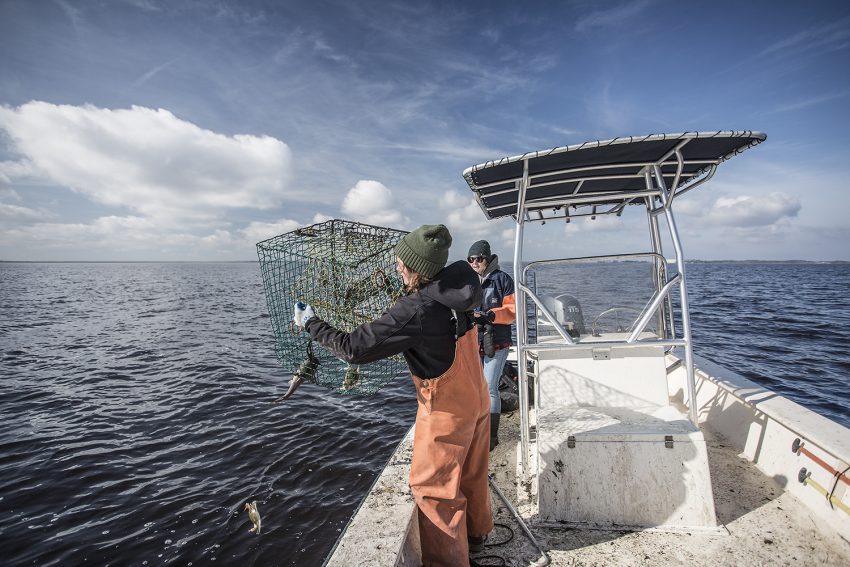Recreational and commercial southern flounder seasons to close Sept. 4

The recreational and commercial southern flounder seasons will close Sept. 4 in North Carolina waters. The N.C. Marine Fisheries Commission made the decision at its meeting last week, adopting the Southern Flounder Fishery Management Plan Amendment 2 as proposed by the Division of Marine Fisheries.
The commission did give the director of the Division of Marine Fisheries flexibility to change the dates of proposed commercial and recreational seasons so long as they still meet required harvest reductions. The division plans to issue proclamations this week that close the commercial and recreational season on Sept. 4. Changes to the allowable gears in the commercial ocean flounder fishery will also be implemented Sept. 4.
Since all species of flounder are managed under the same recreational regulations, the recreational season closure will apply to all flounder fishing. The recreational season will not reopen this year, as the peak recreational flounder fishing season has already passed. As a result, the estimated level of recreational harvest so far in 2019 is greater than that allowed under Amendment 2, thus reducing the expected catch reductions for this sector.
The commercial sector landings do not peak until September and October, so the current commercial harvest combined with the projected harvest during an upcoming open season is projected to equate to a slightly greater reduction than in the recreational fishery.
The commercial flounder season will reopen on Sept. 15 in waters north of Pamlico Sound and on Oct. 1 in Pamlico Sound and all other waters. Other regulations specific to the commercial fishery will be issued by proclamation at a later date. Fishermen should check the Division of Marine Fisheries’ Proclamations Page for updates.
Analysis of Division of Marine Fisheries data indicates that from 2000 to 2018, as much as 50% or more of ocean-caught recreational flounder were southern flounder, as opposed to other flounder species (this includes beach and pier fishing). Since statistical data on the for-hire charter fleet is limited and has high margins of error, the division needs more time to consider whether to separate the for-hire seasons from other recreational fishing seasons.
Additionally, to encourage conservation, the N.C. Saltwater Fishing Tournament (Citation Program) will not issue citations for flounder during the recreational season closure.
Other Business
The Marine Fisheries Commission voted to:
- Send Draft Amendment 3 to the Blue Crab Fishery Management Plan out for public comment and advisory committee review. A 2018 stock assessment determined that North Carolina’s blue crab stock is overfished and overfishing is occurring. At least a 0.4% reduction in the number of crabs harvested (in 2016) is needed to end overfishing within two years, as required by law. At least a 2.2% reduction in the number of crabs harvested (in 2016) is needed to achieve sustainable harvest within 10 years, as required by law. The draft amendment includes several options for achieving these harvest reductions. The Division of Marine Fisheries is proposing management measures that are estimated to result in a 6.3% reduction in the number of crabs harvested (from 2016).
- Set the Eligibility Pool cap at 500 Standard Commercial Fishing Licenses for the 2019-2020 license year.
- Approve notice of text for rulemaking and the fiscal analysis to readopt existing rules under a state-mandated periodic review schedule; to modify 15A NCAC 03M .0509 making tarpon no spear, no gaff and no possession fish; and to modify 15A NCAC 03O .0108 clarifying the circumstances under which transfers of commercial fishing licenses are allowed.
On another issue, the commission voted to deny a petition for rulemaking that, if implemented, would impact the state’s shrimp trawl fishery.
The petition, filed by the Southern Environmental Law Center on behalf of the N.C. Wildlife Federation, asks the commission to designate all internal coastal waters not otherwise designated as nursery areas as Shrimp Trawl Management Areas and for additional gear and time restrictions within these new areas. A previous petition on similar issues, which included the ocean, was rejected based on fiscal feasibility.
As a result, the Marine Fisheries Commission directed the division to consider elements of the petition in an upcoming amendment to the N.C. Shrimp Fishery Management Plan. The fishery management plan process includes input from stakeholder advisory committees and a public comment period. Work on the Shrimp Fishery Management Plan, scheduled to begin this year, will now proceed.
Additionally, new management measures were recently put in place to reduce bycatch in the shrimp trawl fishery. In July of this year, the Division of Marine Fisheries implemented measures from the latest amendment to the shrimp plan that require gear modifications in shrimp trawls for internal coastal waters. Testing has shown the required gear configurations reduce finfish bycatch 40 percent or greater.
Moreover, the Division of Marine Fisheries, along with the Albemarle-Pamlico National Estuarine Program and other agencies, is finalizing mapping of submerged aquatic vegetation in the sound to accurately identify these essential fish habitats.







